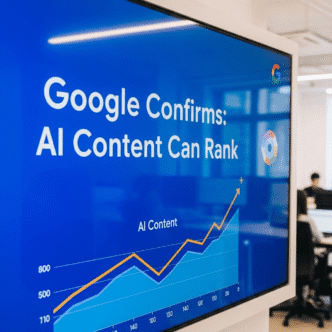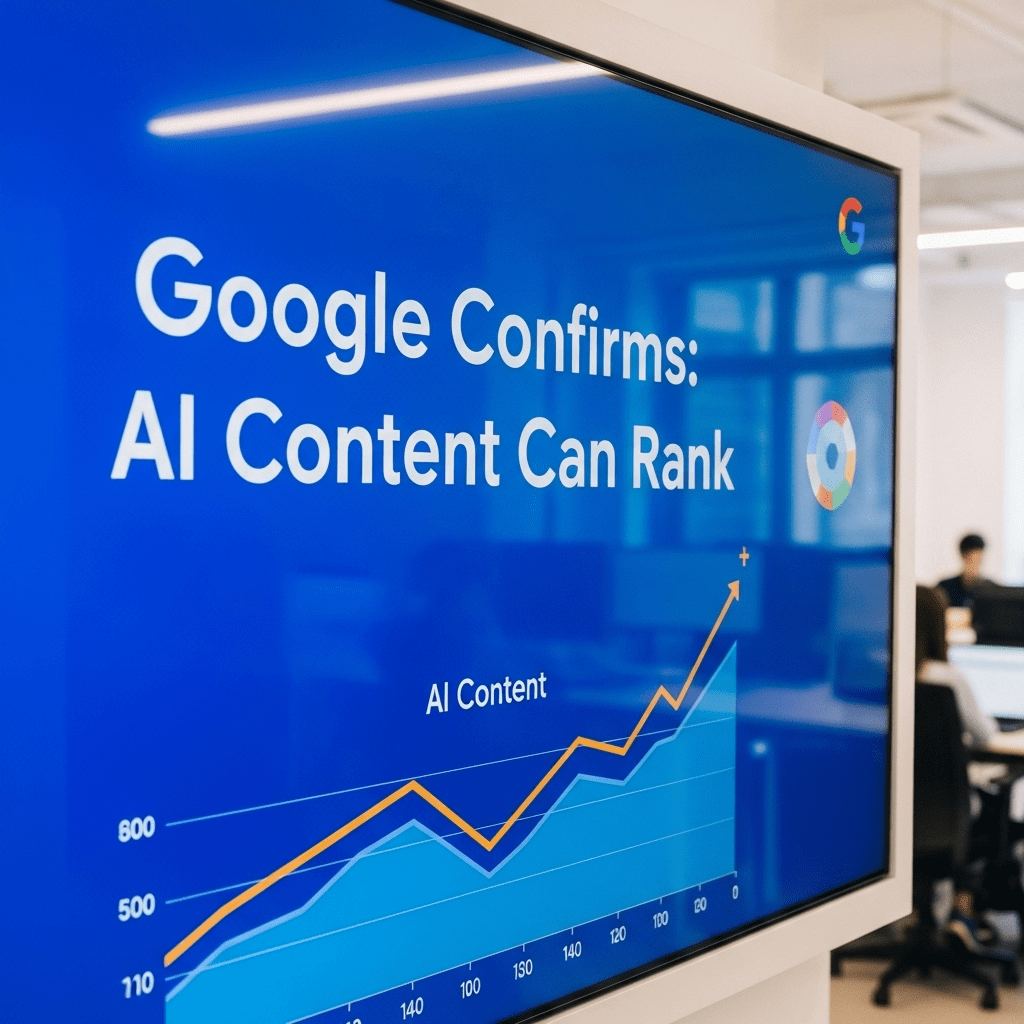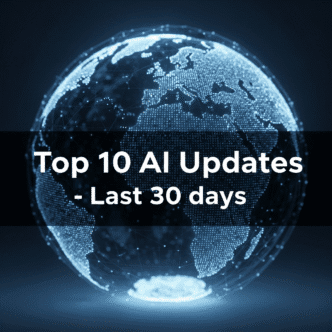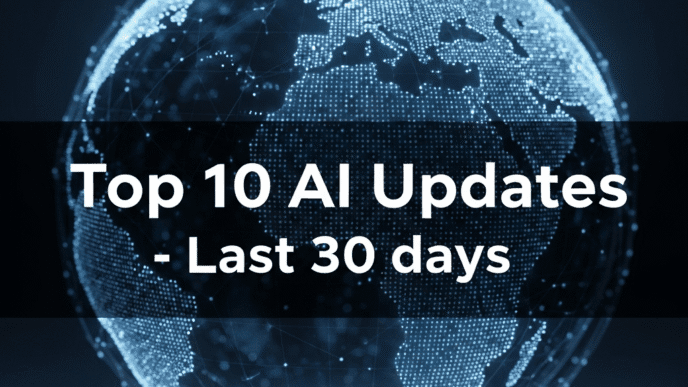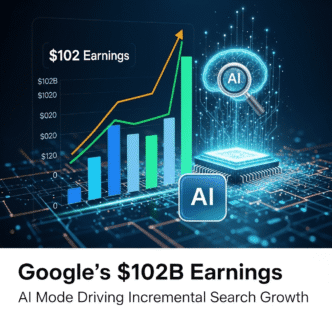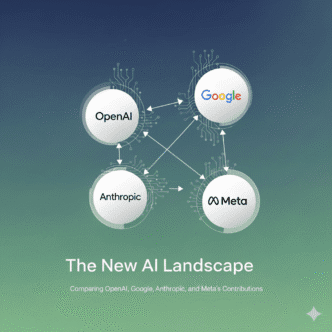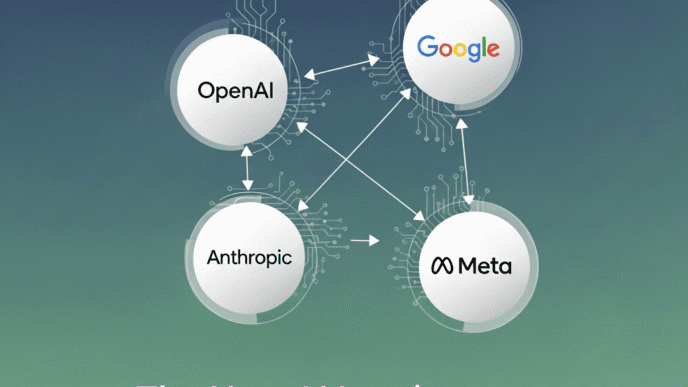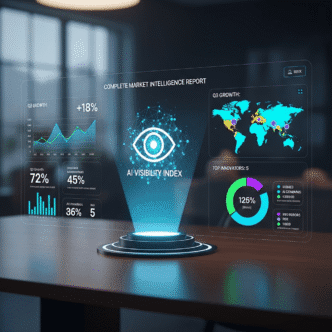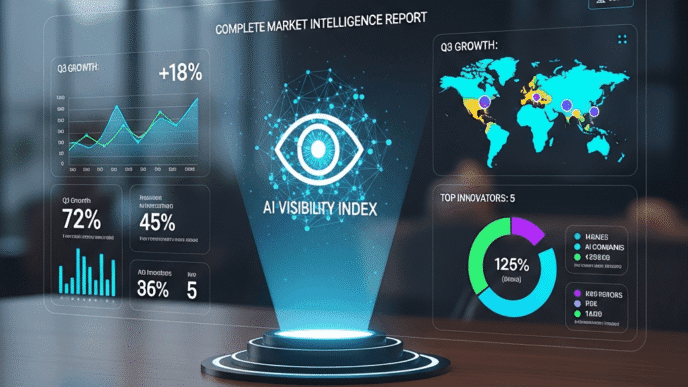Search giant’s 2025 policy update clarifies what separates ranking AI content from penalized spam
Mountain View, CA — In a landscape where artificial intelligence is reshaping content creation, Google has definitively answered the question keeping digital marketers awake at night: Yes, AI-generated content can rank in search results—but the bar for quality has never been higher.
As of October 2025, approximately 17% of top-20 search results contain AI-generated content, according to ongoing research by Originality.AI. This marks a significant shift from just two years ago, when the figure hovered around 8%. But Google’s message is clear: the technology behind your content matters far less than the value it provides.
Table of Contents
Toggle
The Official Stance: Quality Over Origin
Google Search Central has maintained consistent guidance since 2023, stating that “using automation—including AI—to generate content with the primary purpose of manipulating ranking in search results is a violation of our spam policies,” while emphasizing that “not all use of automation, including AI generation, is spam.
The company’s official position focuses “on the quality of content, rather than how content is produced,” treating AI-assisted content the same as human-written material under its E-E-A-T framework: Experience, Expertise, Authoritativeness, and Trustworthiness.
“Google has been dealing with automated content for years—from weather forecasts to sports scores,” explains Danny Sullivan, Google’s Search Liaison.
“AI has the ability to power new levels of expression and creativity, and to serve as a critical tool to help people create great content for the web.”
The Data: AI Content Is Already Winning
Recent industry research challenges the notion that AI content is automatically disadvantaged. A comprehensive analysis by Semrush examining 20,000 blog URLs found that 57% of AI-generated content and 58% of human-written content ranked in the top 10 search positions—virtually identical performance.
Ross Simmonds, CEO of Foundation Marketing, notes the shifting search landscape: “The biggest change around search that is going to happen in 2025 is the continued diversification of channels in which people are conducting their search. From YouTube to Reddit and TikTok to Instagram, the search behaviors of our audience are no longer limited to Google.
However, a survey of over 700 marketers, SEOs, and business owners found that 34% saw no significant traffic change after publishing AI content, suggesting that implementation quality varies widely across the industry.
The Crackdown: When AI Goes Wrong
Google hasn’t been entirely hands-off. In June 2025, the company began issuing manual actions for “scaled content abuse,” targeting websites that excessively use AI-generated content at scale without adding value.
The January 2025 update to Google’s Search Quality Rater Guidelines introduced new language specifically addressing AI content, directing quality raters to watch for pages with main content created using automated or generative AI tools and rate them as lowest quality when appropriate.
Google’s official documentation warns that “using generative AI tools or other similar tools to generate many pages without adding value for users may violate Google’s spam policy on scaled content abuse.
SEO consultant Glenn Gabe observed on social media: “Some site owners believe that ranking well protects their AI-generated content from penalties, but Google evaluates overall site quality, not just individual page performance.
What Separates Winners from Losers
Industry experts have identified clear patterns distinguishing AI content that ranks from content that doesn’t.
Successful AI content typically:
- Undergoes substantial human editing and fact-checking
- Includes original research, expert interviews, or first-hand experience
- Provides unique insights beyond what’s already ranking
- Follows proper content structure with clear headings and proper metadata
- Adds genuine value to the reader’s query
Failing AI content often:
- Shows signs of mass production with minimal effort
- Contains factual errors or AI “hallucinations”
- Relies on keyword stuffing without substance
- Lacks originality or merely repackages existing content
- Includes telltale AI phrases like “as an AI language model”
Ann Smarty, Co-Founder of Smarty Marketing, emphasizes the hybrid approach: “AI isn’t the problem—the problem is when it’s misused. Don’t use AI as a replacement for your writers. Instead, think of it as your assistant.”
The 2025 Reality Check
Despite speculation about Google having a “secret algorithm” to detect AI content, the company has not explicitly stated whether its algorithms can accurately differentiate AI-generated content from human-written text. Third-party AI detection tools frequently misidentify content, with “purely human-written text flagged as AI while AI-generated text is flagged as human.
Content analysis firm Writesonic conducted an experiment by running top-ranking articles through AI detectors. One article ranking first for “how to start a digital marketing agency” was flagged as 71% AI-generated, yet maintained its premium position—demonstrating that detection may not equal devaluation.
Expert Recommendations for Content Creators
Leading SEO professionals recommend a balanced approach:
1. Use AI strategically: Generate outlines, research topics, and create first drafts—but always add human expertise and editing.
2. Enhance with experience signals: Include case studies, personal anecdotes, original data, and expert interviews that AI cannot replicate.
3. Focus on comprehensive depth: Google’s systems continue to prioritize content that demonstrates expertise and provides genuine value over thin, repetitive material.
4. Maintain transparency: Some organizations are disclosing AI assistance in content creation to build trust with readers.
5. Avoid scale for scale’s sake: Creating hundreds of AI-generated pages without clear user value is exactly what Google is targeting.
The Bottom Line
Google’s position represents a pragmatic middle ground: AI is a legitimate tool for content creation, but it doesn’t excuse publishers from their responsibility to provide accurate, helpful, trustworthy information.
As search algorithms continue evolving, the fundamental truth remains unchanged. Whether written by human hands or generated by neural networks, content must earn its ranking by genuinely serving the people searching for answers.
For content creators, the takeaway is straightforward: Use AI to enhance your process, not replace your judgment. The technology that creates your content is far less important than the value it delivers.
References
Google Search Central Blog. (2023). Google Search’s guidance about AI-generated content.” Google Developers. https://developers.google.com/search/blog/2023/02/google-search-and-ai-content
Google Search Central Documentation. (2025). “Using Generative AI Content on Your Website.” Google Developers. https://developers.google.com/search/docs/fundamentals/using-gen-ai-content
Search Engine Land. (2025, April). “Google quality raters now assess whether content is AI-generated.” https://searchengineland.com/google-quality-raters-content-ai-generated-454161
Semrush Content Hub. (2025). Can AI Content Rank on Google? We Analyzed 20K Blog URLs.” https://www.semrush.com/content-hub/can-ai-content-rank-on-google/
Originality.AI. (2025). Amount of AI Content in Google Search Results – Ongoing Study.” https://originality.ai/ai-content-in-google-search-results
Mindbees. (2025, June). Google vs. AI Content: Winning Strategies for 2025.” https://www.mindbees.com/blog/google-ai-content-penalty-strategies-2025/
Writesonic Blog. (2025, July). Does AI Content Rank in Google? A Comprehensive Report [2025].” https://writesonic.com/blog/does-ai-content-rank-in-google
This report synthesizes official Google documentation, industry research, and expert analysis current as of October 2025. The search landscape continues to evolve rapidly.

